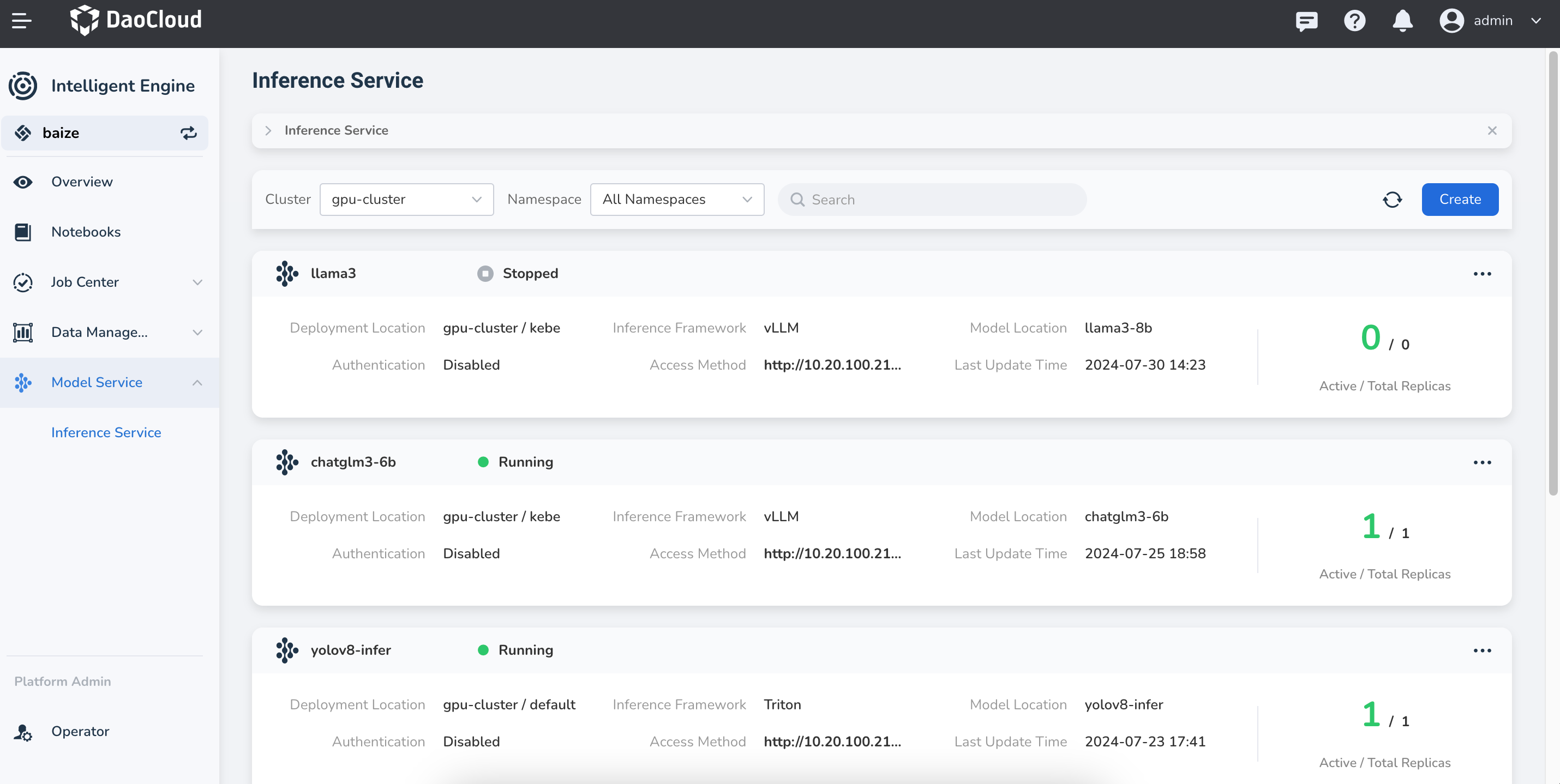Model Support¶
With the rapid iteration of AI Lab, we have now supported various model inference services. Here, you can see information about the supported models.
- AI Lab v0.3.0 launched model inference services, facilitating users to directly use the inference services of AI Lab without worrying about model deployment and maintenance for traditional deep learning models.
- AI Lab v0.6.0 supports the complete version of vLLM inference capabilities,
supporting many large language models such as
LLama,Qwen,ChatGLM, and more.
Note
The support for inference capabilities is related to the version of AI Lab.
You can use GPU types that have been verified by AI platform in AI Lab. For more details, refer to the GPU Support Matrix.

Triton Inference Server¶
Through the Triton Inference Server, traditional deep learning models can be well supported. Currently, AI Lab supports mainstream inference backend services:
| Backend | Supported Model Formats | Description |
|---|---|---|
| pytorch | TorchScript, PyTorch 2.0 formats | triton-inference-server/pytorch_backend |
| tensorflow | TensorFlow 2.x | triton-inference-server/tensorflow_backend |
| vLLM (Deprecated) | TensorFlow 2.x | triton-inference-server/tensorflow_backend |
Danger
The use of Triton's Backend vLLM method has been deprecated. It is recommended to use the latest support for vLLM to deploy your large language models.
vLLM¶
With vLLM, we can quickly use large language models. Here,
you can see the list of models we support, which generally aligns with the vLLM Support Models.
- HuggingFace Models: We support most of HuggingFace's models. You can see more models at the HuggingFace Model Hub.
- The vLLM Supported Models list includes supported large language models and vision-language models.
- Models fine-tuned using the vLLM support framework.
New Features of vLLM¶
Currently, AI Lab also supports some new features when using vLLM as an inference tool:
- Enable
Lora Adapterto optimize model inference services during inference. - Provide a compatible
OpenAPIinterface withOpenAI, making it easy for users to switch to local inference services at a low cost and quickly transition.